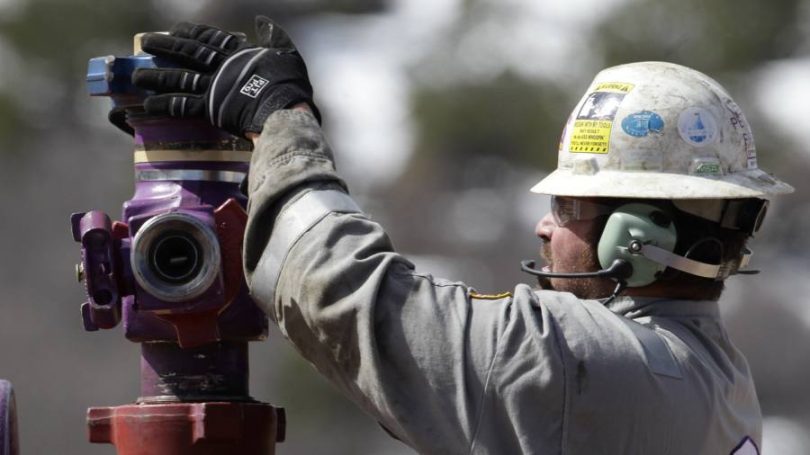[ad_1]
US lawmakers are stepping up scrutiny of the oil and gas industry in three separate hearings linked to investigations into “deceptive” advertising campaigns that misled the public about climate change.
In a report released by the Democratic House Natural Resources Committee’s Oversight and Investigations panel, investigators said corporate public relations companies “go far beyond typical marketing techniques to get results for the fossil fuel industry”.
Tactics identified by the report included creating so-called “astroturf ‘citizen’ groups” to hide the involvement of big oil and gas companies, building fake news websites, and channelling payments to PR companies through non-profit organisations to obscure the origin of the payments.
Lawmakers on the committee have written to five PR companies — FTI Consulting, Story Partners, DDC Advocacy, Blue Advertising and Singer Associates — requesting documents and information on their work with fossil fuel clients. The committee has threatened to issue a subpoena to FTI.
“As we face more deadly, extreme weather around the globe, fossil fuel companies are reaping record profits and ramping up their misleading PR tactics to distract from their central role in fuelling the climate crisis,” said Carolyn Maloney, the Democratic chair of the committee.
FTI said it was co-operating with the congressional committee and that its work for clients across all sectors was consistent with its own climate commitments.
One case study in the committee report outlines a campaign against a proposed fracking restriction in Colorado by PR company Pac/West. It managed two non-profit groups, called Protect Colorado and Coloradans for Responsible Energy Development, on behalf of a group of fossil fuel companies.
The report also describes a website launched by Singer Associates, called The Richmond Standard, that was designed to improve oil major Chevron’s image following a refinery fire in Richmond, California, in 2012.
Congressional investigators said the website contained news articles unrelated to Chevron, along with “pieces that more blatantly seek to portray the oil major as socially and environmentally responsible”.
Singer Associates, Story Partners, DDC Advocacy, Blue Advertising and Pac/West did not respond to requests for comment.
In a separate hearing, the House Committee on Oversight and Reform, lawmakers published hundreds of pages of internal emails from oil and gas companies.
The internal memos and emails show oil executives candidly acknowledging that the industry did not intend to comply with “net zero” greenhouse gas emission ambitions.
Excerpts released by the committee included an email sent by a Shell employee in October 2020 that canvasses so-called talking points for a US company executive, stating that the company’s commitment to a pathway to net zero emissions “has nothing to do with our business plans”.
According to a committee outline of their findings, internal Shell PR guidance calls on employees to frame a net zero goal as “a collective ambition for the world” rather than a “Shell goal or target”.
“Please do not give the impression that Shell is willing to reduce carbon dioxide emissions to levels that do not make business sense,” it says.
Shell said the small portion of documents highlighted by the congressional committee were evidence of its “extensive efforts to set aggressive targets”.
Challenging internal and external discussions signalled Shell’s intent to “form partnerships and share pathways we deem critical to becoming a net zero energy business”, it said.
Elsewhere, internal ExxonMobil documents reveal pressure on a trade association to remove language from a public statement that could be interpreted as an “explicit commitment” on behalf of oil companies “to align their advocacy with their climate related positions”.
In response, ExxonMobil said it supported the Paris Agreement to curb global warming, and that the “selective publication” of emails represented “a deliberate attempt to generate a narrative that does not reflect the commitment of ExxonMobil — and its employees, to address climate change and play a leading role in the transition to a net zero future”.
A third hearing, spearheaded by Democratic congressman Jamie Raskin, interviewed legal academics on the use of strategic lawsuits and anti-protest laws to combat movements against fossil fuel projects.
Whistleblower Christine Arena, a former Edelman executive who gave testimony to the Natural Resources Committee, said while companies had a right to hire PR groups, the objections she raised were “specifically to how they’re communicating, the strategies and tactics they’re using on behalf of clients”.
Arena said she did not advocate a fossil fuel advertising ban. “What I want is forced disclosures,” she said.
Climate Capital

Where climate change meets business, markets and politics. Explore the FT’s coverage here.
Are you curious about the FT’s environmental sustainability commitments? Find out more about our science-based targets here
[ad_2]
Source link








